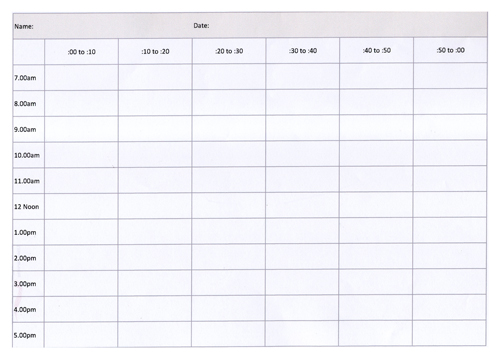Most people, and especially those who want to spend time studying, often feel like there’s not enough time in the day. This feeling can lead to all kinds of issues – the main one being an increase in the stress levels a person experiences. This is caused by the thought that you’ll not get everything done in the time you have, which can have all kinds of knock-on effects. These could include being in trouble with your boss for not completing a report on time, or missing a deadline for an important exam or essay. But time management not only affects the things you do at work. It can also affect the things you need to do for your home life too. Perhaps you’ve got a job to do on your house, which needs to be done by the end of the week, and you just can’t see how you’ll be able to achieve it in the time you’ve got available. What do you do?
Well, time management can help with all those issues and more. It’ll show you how to manage your time so that you get the most from it and a great way to start is to create a time diary. A time diary is a simple recording exercise that allows you to monitor where and how your time is being spent each day. It’ll help you see where you waste or ‘leak’ time, so that you can do something about it.
You don’t need any special equipment to start your time diary – just a piece of paper and a pencil. All you need to do is write down what you do each day. You need to note in detail the time you started the task, the time you completed it and what the task was. You should do this for at least seven days – more if you want a more detailed picture of what’s happening, but seven days is enough to start with.
A tip to keep your time diary on track is to make sure you fill it in as you go along. If you wait until the end of the day, you’ll forget what you’ve done and how long it took too complete it. And, what you’ll usually find yourself doing in this situation is grossly over or under-estimating the time you spent doing something.
Your Time Diary Sheet could look something like this.
What’s Next?
So what do you do with all the information you gather about your day? That’s easy. You look for the areas where you lose time, or don’t do anything productive with it, if you prefer. However, don’t confuse this with thinking time, which is important. What you need to look for are areas where you do nothing that’s related to your goals, such as watching TV, listening to music, checking emails, twitter and Facebook or, the worst time thief of all, surfing the internet. While the internet can be a great source of information, it can also suck all the time you have without you even realising it. You know how it goes, you start to look at something and that page has a link on it, so you click through that one and, before you know it, you’re looking at something weird and wonderful, but sadly nothing to do with your study. We’ve all done it!
Your time diary will show you where this is happening so you can stop it. And, once you’ve identified the time leaks, you can plug them. When you’ve done this, you should see an increase in your productivity and efficiency.
If you need more help managing your time, why not ask for information on our Effective Time Management course?












